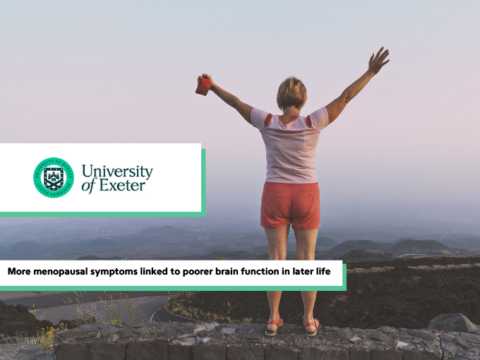
Brain health in over 50s deteriorated more rapidly during the pandemic, even if they didn’t have COVID-19, according to major new research linking the pandemic to sustained cognitive decline.
Researchers looked at results from computerised brain function tests from more than 3,000 participants of the online PROTECT study, who were aged between 50 and 90 and based in the UK. The remote study, led by teams at the University of Exeter and the Institute of Psychiatry, Psychology & Neuroscience (IoPPN) at King’s College London, tested participants’ short term memory and ability to complete complex tasks.
Through analysing the results from this big dataset, researchers found that cognitive decline quickened significantly in the first year of the pandemic, when they found a 50 per cent change to the rate of decline across the study group. This figure was higher in those who already had mild cognitive decline before the pandemic, according to the research published in The Lancet Healthy Longevity.
This continued into the second year of the pandemic, suggesting an impact beyond the initial 12-month period of lockdowns. The researchers believe this sustained impact to be particularly relevant to ongoing public health and health policy.
The cognitive decline seems to have been exacerbated by a number of factors during the pandemic, including an increase in loneliness and depression, a decrease in exercise and higher alcohol consumption. Previous research has found that physical activity, treating existing depression, getting back into the community and reconnecting with people, are all important ways to reduce dementia risk and maintain brain health.
Anne Corbett, Professor of Dementia Research and PROTECT Study Lead at the University of Exeter, said: “Our findings suggest that lockdowns and other restrictions we experienced during the pandemic have had a real lasting impact on brain health in people aged 50 or over, even after the lockdowns ended. This raises the important question of whether people are at a potentially higher risk of cognitive decline which can lead to dementia. It is now more important than ever to make sure we are supporting people with early cognitive decline, especially because there are things they can do to reduce their risk of dementia later on. So if you are concerned about your memory the best thing to do is to make an appointment with your GP and get an assessment.
“Our findings also highlight the need for policy-makers to consider the wider health impacts of restrictions like lockdowns when planning for a future pandemic response.”
Professor Dar Aarsland, Professor of Old Age Psychiatry at King’s IoPPN, said “This study adds to the knowledge of the long-standing health-consequences of COVID-19, in particular for vulnerable people such as older people with mild memory problems. We know a great deal of the risks for further decline, and now can add COVID-19 to this list. On the positive note, there is evidence that life-style changes and improved health management can positively influence mental functioning. The current study underlines the importance of careful monitoring of people at risk during major events such as the pandemic.”
The PROTECT study, a partnership with King’s College, London, is part of the National Institute for Health and Care Research Exeter Biomedical Research Centre’s world-leading Neurodegeneration theme research. The Centre, a partnership between The University of Exeter and the Royal Devon University Healthcare NHS Foundation Trust alongside other NHS organisations, has five core research themes aimed at translating scientific discoveries swiftly into benefits to patients.
The paper is entitled ‘Cognitive decline in older adults during and after the COVID-19 pandemic: a longitudinal analysis of the PROTECT UK study data’ and is published in The Lancet Healthy Longevity.
The PROTECT study is conducted entirely online and is open to new participants aged 40 and over. To find out more, visit: https://www.protectstudy.org.uk

 Print This Post
Print This Post





